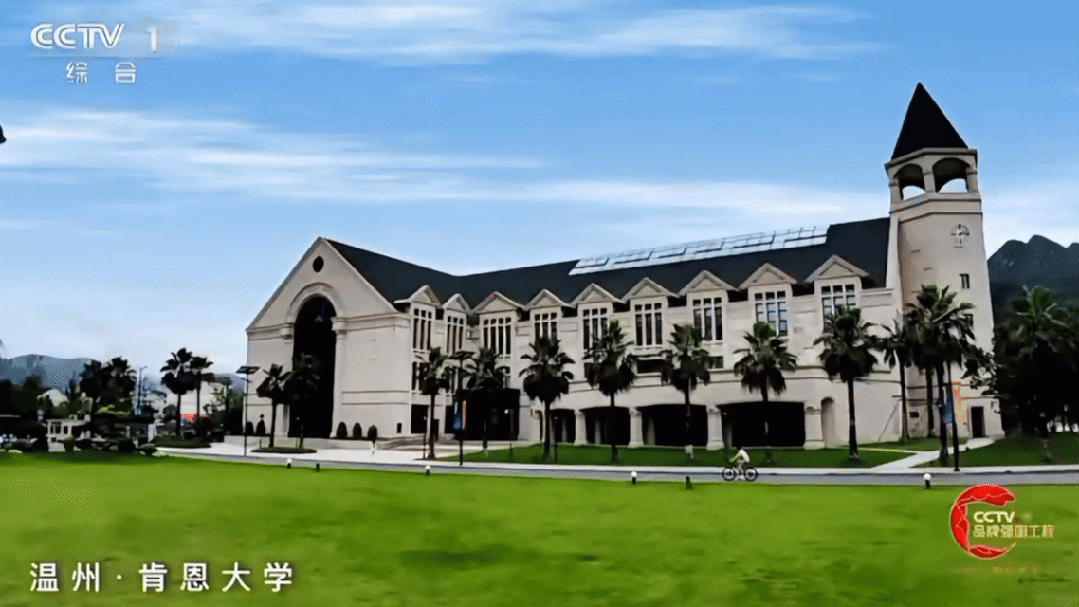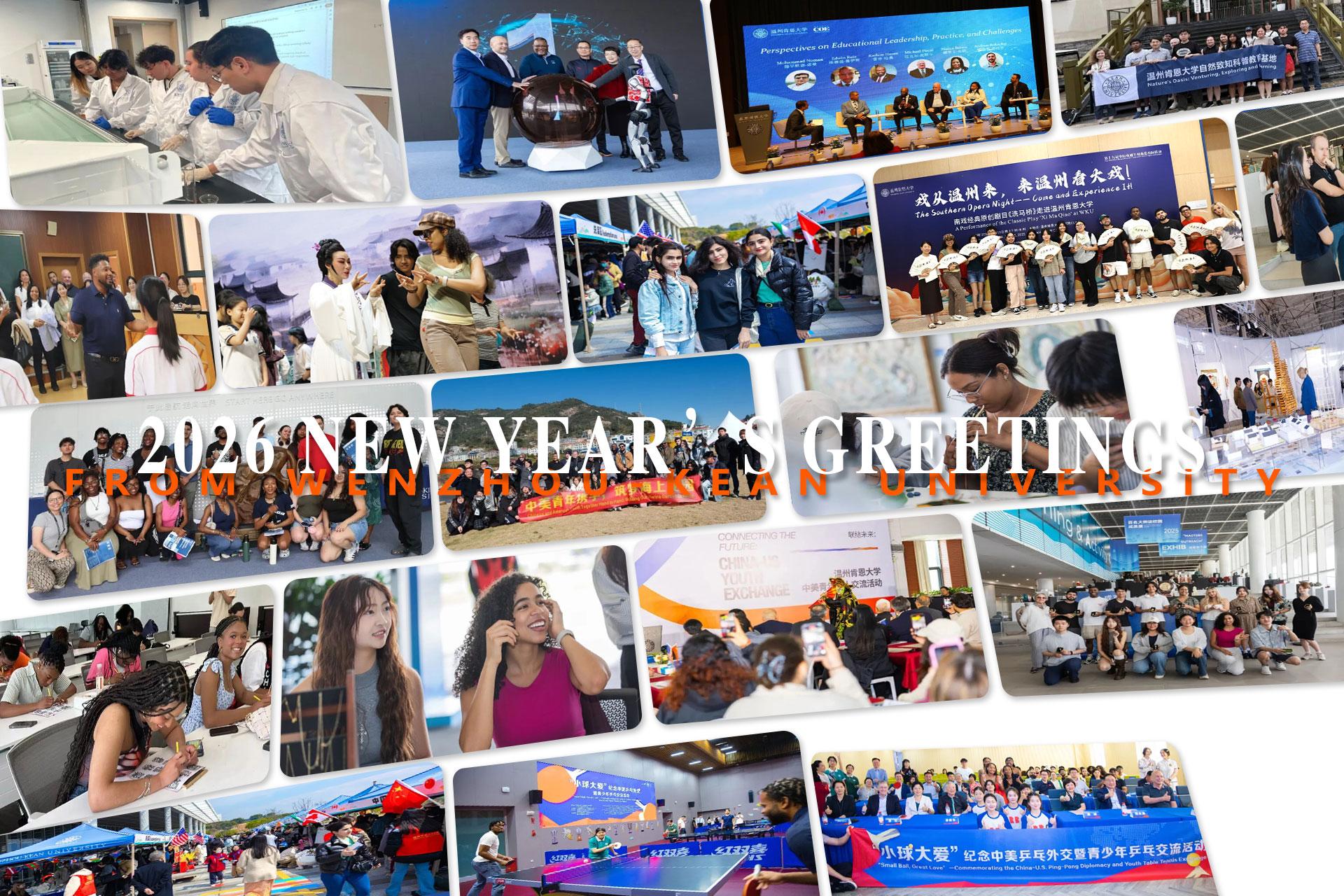【China Daily】Cooperation between Kean University and Wenzhou-Kean opens new doors for students
By offering American-style education, Wenzhou-Kean University in Wenzhou, Zhejiang province, has become a popular choice for thousands of students.
Lamont O. Repollet, president of Kean University visits WKU on March 22.
Lamont O. Repollet, president of Kean University in the United States, couldn’t wait to see the changes in the cooperative campus with a local university in Wenzhou, a flourishing trade city in East China’s Zhejiang province, shortly after his arrival on March 20.
It was his second visit to Wenzhou-Kean University in six years and the first time as president of KU’s global institution.
“My first impression coming back after six years was a sense of pride,” Repollet told reporters in a news briefing on March 23. “There are only a handful of schools in the US that actually can say that they’re here with an American — style education on Chinese soil, and we are in that company.”
The Sino-US cooperative university has made remarkable progress since its establishment in 2011.
More than 2,700 students had graduated from WKU over the past seven years and many of them received offers from the world’s top 50 colleges to continue their education, according to the university.
There are more than 4,000 students on the WKU campus in 18 undergraduate majors. Some 180 of the students are in master’s and doctoral programs.
The university has employed 185 full-time teachers from 40 countries and regions through global recruitment, 87 of whom are on tenure track, to ensure the implementation of a US educational model featuring small classes, an English-only environment and an inquiry-based learning approach.
WKU’s development plan for 2023-30 indicates that the number of students on campus will reach 7,000 by 2025 and 10,000 in 2030. Correspondingly, the number of full-time faculty will reach 410 in 2025 and rise to more than 600 by 2030.
“Our vision is to achieve excellence in courses, teaching and research. We aim to be an international high-level university and a model of Chinese-foreign cooperation in running schools,” said Wang Beijiao, chairman of the board of directors of WKU.
Centering on students
In WKU, all teachers, including associate professors and professors, are required to spend a minimum of 360 hours a year teaching undergraduates, which is far longer than the designated hours in most of the domestic universities, said Yan Xiaopeng, deputy Party secretary of WKU.
“We always put the students first and give them the abundant resources. We are cultivating talents with international perspectives and critical thinking,” Yan said.
Sticking to the liberal education, the university encourages the students to diversify the selection of their elective courses.
For example, students majoring in computer science can choose a class on art, while students in liberal arts can choose a course on management and students in economics can choose a class on computers. Some students can also apply for dual degrees.
However, it’s not easy to get the credits since every course has set very high standards, Yan said, noting that students are under pressure and must work very hard to graduate from WKU.
One student majoring in art has combined painting with psychology to solve psychological problems and passed the qualification tests, according to Yan.
Quite a few students of WKU have exhibited brilliant performances in representing Chinese youth at some of the international conferences. They’ve also won awards in high-level competitions at home and abroad, according to the university.
Given the cooperation with Kean University, a public university in New Jersey, WKU started to launch the student exchange program between the two campuses in 2014.
“Including the current semester, 1,400 students have benefited from studying in New Jersey or in Wenzhou,” Repollet said.
These exchange students have been given opportunities to study, do internships and participate in cultural events and tours in one another’s countries.
Even during the COVID-19 pandemic, several hundred WKU students went to study in New Jersey.
Meanwhile, about 100 WKU students have attended a virtual internship program, which was jointly launched in March 2021 by the two universities, allowing students to work halfway around the world as interns on each other’s campuses.
The president said the exchange of students and faculties between the two universities will be more frequent in the coming years.
Serving the community
KU and its Chinese partner Wenzhou University are both public universities that receive significant support from local governments.
During his stay in Wenzhou, Repollet said he met with top officials of the city and discussed the role of WKU as an anchor institution in its local community.
“Education is the economic driver of a community,” Repollet said. By anchoring down within the community, universities can provide expertise and research personnel as well as professionals such as accountants and architects to sustain the community.
According to Repollet, KU is growing to become a national university and the first urban research university in New Jersey.
During the COVID-19 pandemic, the university became a resource for its community because it had a testing lab and also served as a vaccination site. People could drive to the university and take a test. It took just a few hours instead of waiting for two to three weeks in other testing stations, according to the president.
Eric Yang, academic vice-chancellor of WKU, said the university has strengthened its connection with the industries in Wenzhou and surrounding cities in China’s booming Yangtze River Delta area, to better serve the economy.
WKU has implemented more than 300 scientific research projects in total, the university said, and possesses a provincial-level scientific platform as well as two such platforms at city level.
WKU and KU will work together to improve the cross and cutting-edge disciplines such as artificial intelligence, and build advantageous disciplines such as healthcare and education to better serve the local community, Yang said.
Talking about the hotly debated ChatGPT, an advanced AI chatbot trained by OpenAI that can interact in a conversational way, Repollet advised that people embrace the new technology and make it a tool to advance everyone’s life, a concept that KU and WKU conveys to its students.
“It’s a tool that we must learn how to work with,” Repollet said. “We should embrace the technology the same way that we embrace the virtual learning.”




